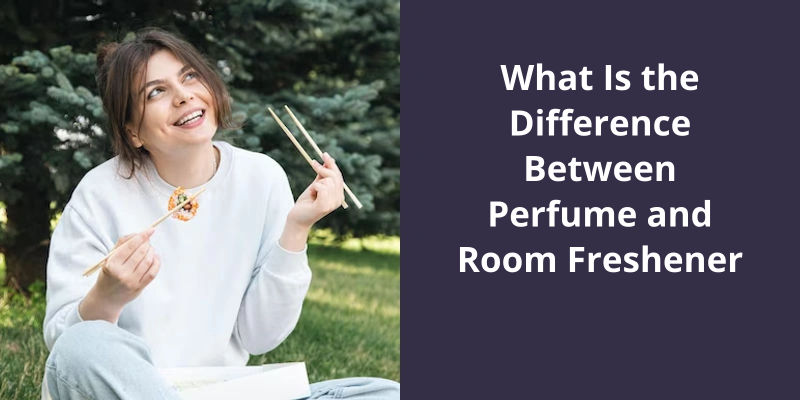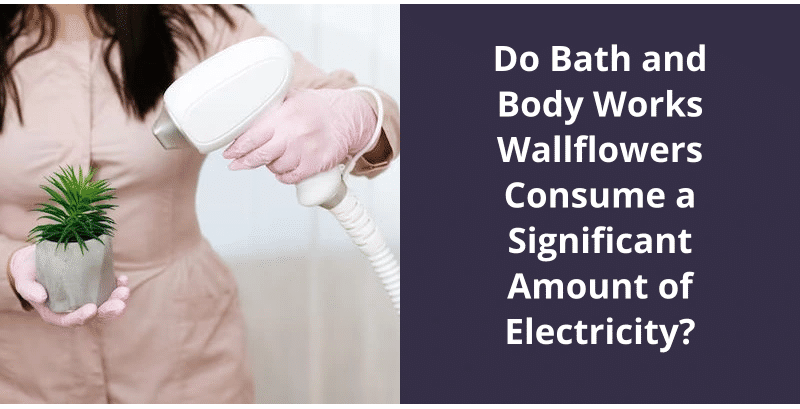The difference between perfume and room freshener lies primarily in their purpose, composition, and longevity. Perfume is a complex blend of various fragrant essential oils, aroma compounds, fixatives, and solvents, designed to give a pleasant scent to our body. It’s crafted for skin application, and it usually has a long-lasting effect depending on its concentration. On the other hand, a room freshener is an aerosol spray product intended for use in the house to mask unpleasant odors and freshen the air. Its scent often dissipates faster than that of perfumes because it’s made of lighter volatile compounds. Furthermore, it’s not always safe for skin application due to additional chemicals used for dispersion.

What Is the Difference Between Perfume and Air Freshener?
Perfumes are specifically designed to be applied onto the skin, with the aim of providing a pleasant scent that lingers throughout the day. They undergo a complex formulation process, often consisting of a blend of different fragrant oils, alcohol, and sometimes water. These fragrant oils are carefully selected and combined to create a unique scent profile. There are various concentrations of perfumes, ranging from eau de cologne to eau de parfum, with higher concentrations lasting longer on the skin.
On the other hand, air fresheners are primarily intended to eliminate or mask odors in a room or enclosed space. They come in various forms, such as aerosols, plug-ins, or gel fresheners. Unlike perfumes, air fresheners typically contain synthetic fragrances and chemicals that are designed to disperse quickly into the air, eliminating or overpowering unpleasant smells. These fragrances are often stronger and more concentrated than those used in perfumes.
Another key difference between perfumes and air fresheners lies in their longevity. Perfumes are specifically formulated to have a long-lasting scent on the skin, often lasting for several hours.
Furthermore, room sprays are formulated to be used in larger spaces and are designed to disperse scent molecules more efficiently. As a result, the concentration and strength of the fragrance in room sprays can be stronger than that of perfumes and body sprays. This difference in formulation and purpose can contribute to the perception that room sprays are stronger than perfumes.
Is Room Spray Stronger Than Perfume?
When discussing the difference between perfume and room freshener, it’s important to consider the strength and composition of each product. One noticeable distinction is the potency of room sprays compared to perfumes. According to Pefferman, room sprays often contain a higher concentration of fragrance chemicals and solvents. This is due to the need for a more pronounced scent that can effectively neutralize odors in a larger space.
Unlike body sprays and perfumes, room sprays may also include non-skin-safe chemicals. These additives serve the purpose of extending the fragrances longevity or enhancing it’s ability to eliminate unwanted smells. The use of such chemicals in room sprays is undoubtedly higher, as they aren’t in contact with the skin and don’t pose risks for potential skin irritation or allergies.
On the other hand, perfumes and body sprays are formulated to be safe for direct application to the skin. Consequently, their composition includes a lower concentration of fragrance chemicals and solvents, ensuring that they’re less overpowering and more suitable for personal use.
Perfumers carefully craft fragrances to develop tailored notes and accords that interact with the skin, providing a more personalized experience.
The Different Purposes and Uses of Room Sprays and Perfumes
Room sprays and perfumes serve different purposes and have distinct uses.
Perfumes are intended to be applied to the body, typically on the skin or clothing, to enhance personal scent and leave a pleasant fragrance. They’re designed with higher concentrations of aromatic compounds that slowly release their scent over time. Perfumes may contain various ingredients like essential oils, alcohol, and fixatives to ensure a longer-lasting fragrance.
In contrast, room sprays, also known as air fresheners or air freshening sprays, are specifically formulated to improve the odor in a specific area, such as a room, car, or any enclosed space. Room sprays provide a quick burst of fragrance that quickly disperses in the air, temporarily masking unpleasant smells. They often contain ingredients like odor neutralizers, solvents, and perfuming agents, which help to eliminate or minimize unwanted odors in a specific area. However, room sprays are typically not suitable for direct application on the body due to their formulation.
Overall, while both perfumes and room sprays serve the purpose of adding fragrance to the environment, perfumes are primarily used for personal scent, whereas room sprays are designed to freshen and improve the aroma within a confined space.
Source: The 7 Best Room Sprays of 2023 – Byrdie
These pollutants can include volatile organic compounds (VOCs), which are chemicals that can easily vaporize at room temperature and be inhaled. VOCs from strong perfumes and air fresheners can contribute to respiratory irritation, headaches, allergies, and other health issues. Therefore, it’s important to consider the potential impact of these products on indoor air quality and explore alternative options that are less harmful to our health and the environment.
Do Strong Perfumes or Air Fresheners Affect Indoor Air Quality?
Strong perfumes and air fresheners have the potential to affect indoor air quality in various ways. When these products are used in enclosed spaces, they can release volatile organic compounds (VOCs) into the air. VOCs are chemicals that vaporize at room temperature and can be harmful to human health. Some commonly found VOCs in perfumes and air fresheners include formaldehyde, benzene, and toluene.
These pollutants can have both short-term and long-term effects on indoor air quality. In the short-term, exposure to strong perfumes and air fresheners can cause headaches, dizziness, and irritation of the eyes, nose, and throat. People with allergies or asthma may experience worsened symptoms due to the presence of these pollutants.
In the long-term, continuous exposure to VOCs can lead to more severe health problems. Studies have linked certain VOCs to respiratory disorders, allergies, and even cancer.
Furthermore, the chemicals in these products can interact with other pollutants already present in indoor air, including tobacco smoke, cleaning products, and cooking fumes. This can lead to the formation of secondary pollutants, such as formaldehyde, which is a known carcinogen.
It’s essential to be mindful of the products we use and opt for safer alternatives to minimize the impact on indoor air quality.
Conclusion
In conclusion, the fundamental difference between perfumes and room fresheners lies in their formulation and intended usage. With a higher concentration of fragranced oils, they ensure a lingering scent that accompanies you throughout the day. Their formulation focuses on producing a pleasant aroma that can quickly dissipate, creating a welcoming ambiance without overpowering the senses.





